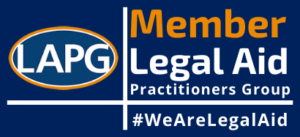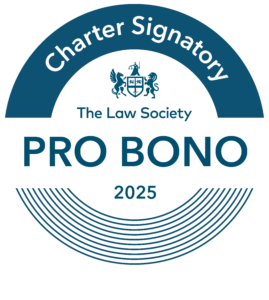Mladen arrived in the UK as a refugee from the Yugoslavian Civil War in the 1990s. Having successfully claimed asylum, Mladen studied English law at University with an aim of assisting those like him who sought sanctuary in the UK. In 2010, Mladen founded Kesar & Co Solicitors, having worked for several law firms and not-for-profit organisations. Mladen’s first-hand knowledge and experience of the asylum system gave him unique skills when representing clients in immigration and asylum matters. Whilst Kesar & Co started with exclusively legal aid work, the practice soon expanded into private and commercial areas of law, employing about 30 people. Mladen combines his roles of the company director, supervisor and compliance officer with a diverse caseload in several areas of law.
In August 2013 as a response to the LASPO 2012 legal aid cuts, our firm set up a legal charity called Intervene Project in order to help people in custody who have been denied access to legal advice and assistance. Despite very limited financial support, Intervene has been a great success and is still providing free advice and representation to hundreds of prisoners with a plethora of legal issues. Mladen has been the Intervene CEO but he has also trained and supervised numerous volunteers.
Mladen’s work evolved over the years but he has been involved in a number of public and private law cases against public bodies, private companies and individuals. Outside the office hours, Mladen enjoys cycling and short breaks with his family.
Notable cases
The Queen (on the application of Bowen and Stanton) v. Secretary of State for Justice
The Queen (on the application of Bowen and Stanton) v. Secretary of State for Justice [2016] EWHC 2057 (Admin)
The Claimants, Mr Bowen and Mr Stanton, were both convicted of serious offences and sentenced to indeterminate sentences. Both claimants had served the minimum period and were eligible for parole. The Parole Board then reviewed their cases and recommended release to approved premises. Owing to demand for such accommodation, each claimant had to wait several months to be released. They challenged this delay and argued that their detention was arbitrary and unjustified. The court held that there was no breach of public duty akin to James. The defendant did not breach the claimant’s rights under Article 5 ECHR or s.28 of the Crime (Sentences) Act 1997. This was later upheld by the Court of Appeal which rejected the appeal stating that it was not the executive who determined when the appellants’ detention should end, but they could be released only with regard to the protection of the public and that they remained in custody “under their original sentences”. Unfortunately, the UK Supreme Court rejected the claimant’s application for permission to appeal.
AHM v. SSHD
The claimant remained in the immigration detention for an excessive period. During this period the claimant rejected the attempts of the SSHD to facilitate an application for an emergency travel document and made repeated, although unsuccessful, asylum applications. The claimant had been diagnosed with a mental health condition which worsened during the period of immigration detention and led to the loss of capacity shortly after his release. The court accepted that approximately five months of the immigration detention was unlawful and awarded £10,000 of damages.
MG v. Hounslow NHS CCG
The claimant was placed in a nursing home where his personal liberty was restricted. He was not given adequate mobility aids, access to TV, reading materials etc. The claimant was assaulted by another resident but a doctor and/or the police were not called. The incident was not recorded. The claimant’s mobility and risk of falls had not been assessed properly and his long history of falls and injuries was disregarded. When the claimant issued proceedings the defendant complied with their duties in full and the claim was settled by consent.
MM v. Admiral
A man involved in a road traffic accident suffered the hand and hip injuries. Owing to the further developments it was identified that the claimant developed a psychological injury. The defendant sought to minimise the value of the injury and offered to settle the claim first for £50,000 and later for £100,000. After negotiation, the defendant agreed that the appropriate amount of damages should be £230,000.
SK v. Global Cruise Services Ltd
This was a claim based on the employer’s liability for injury at work. SK worked on a cruise ship in the area exposed to sea spray and, sometimes, rain. He was not given protective non-slip footwear despite repeated requests. One day when the sea was rough, SK fell down the stairs and injured his back. The claim was settled for £42,000.
Comments by clients
“A very big thank you to Mr Kesar for being patiance with me and my problems. I hope Mr Kesar can always be my caseworker and Kesar & Co will be my legal team!”
“Mr Mladen what can I say? Sharp and knowledgeable as hell, explains why it is.”










